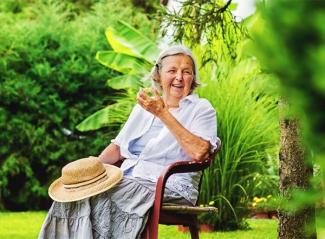
With the rapid increase in ageing population, elder abuse is predicted to increase in the coming years. We speak to Sailesh Mishra, who is working passionately for the advocacy of senior citizens and geriatric care, on the existing scenario and how best we can create an elder friendly society.
How many senior citizens are there in India today? What percent of the total population do they comprise?
There are 100 million plus senior citizens (above 60) in India today. They comprise about 10% of the population.
Is it possible to get any statistics on how many elderly people are affected by physical and emotional abuse in India each year?
According to a rough estimate –
- Nearly 40% of older people living with their families are reportedly facing abuse of one kind or another.
- Only 1 in 6 cases actually comes to light.
- Most elders are ill-treated by their own children, who have emerged as the largest group of perpetrators at 47.3 %.
There are growing instances of elderly abuse in society today? What are some of the key reasons for it?
It is essentially because of the mindset of society. All over the world there is a myth about ageing, that once people turn 60, they are good for nothing. They are like dead asset, they become a burden. We no longer honour or respect them, because they are not productive. But the fact is that senior citizens are active even 30 to 40 years after retirement.
Secondly, women, particularly in India, tend to be generally confined to the kitchen, domesticity for 40 years of their life. When they turn 60, they find they do not know anything about the world outside. They do not know much about their finances, bank accounts, investments. Some of them do not even know how to sign a cheque. They become totally vulnerable and dependent. This exposes them to exploitation and abuse. They need to be empowered and educated.
Thirdly, 90% of senior citizens do not do any financial planning for their retirement. There is no financial planning, security and freedom.
Fourthly, senior citizens need to improve their self-image. They should not seek sympathy and pity all the time. They should engage themselves in activities suited to their age and keep themselves busy. They should keep their mind and body active to the best possible extent. Respect has to be earned. I visited Australia recently, and I found that people even at the age of 70 and 80 try to keep active, motivated and on the go. They engage themselves in community service, social activity, people’s campaign, public reading, civic education…anything they feel they can contribute and bring about a positive impact.
What are the different types of abuses that are generally reported?
Physical
Physical abuse is physical force or violence that results in bodily injury, pain, or impairment. It leads to serious physical injuries and long-term psychological consequences.
Emotional or Psychological
Emotional or psychological abuse can range from name-calling or giving the ‘silent treatment’ to intimidating and threatening the individual.
Financial and Exploitation
Financial exploitation is misuse of an elder’s funds. It includes fraud, taking money under false pretences, forgery, and forced property transfer, using the elder's money to purchase expensive items without knowledge or permission, denying the older person access to his or her own funds or home. It also includes improper use of power of attorney, illegal or unauthorized use of a person’s property.
Neglect
Neglect can include failure to provide food, water, clothing, medication and assistance of activity for daily living.
Abandonment
Elder abuse can also include deserting an elderly, dependent person with the intent to abandon them or leave them unattended at a place for such a time period as may be likely to endanger their health or welfare.
What are the possible signs or recognition tools of elderly abuse or neglect that one should be vigilant about?
- The elderly visit hospital/clinics frequently with nonspecific symptoms.
- Once admitted, they try to avoid getting early discharge. They keep reporting new symptoms every day to extend their stay in hospital/clinic.
- They seek privacy or are seen crying in the clinic.
- They are underweight and show signs of malnutrition and poor hygiene.
- They are using broken spectacles or hearing aid or walking stick.
- There are tell-tale signs of injuries at unusual sites, unexplained bruises, non-healing wounds, injuries in genitalia, etc.
- There is delay in seeking treatment and difference in history of presentation between patient and caregiver.
- They contemplate suicide or seek medication to end life.
- They exhibit dependency on alcohol, drug or tobacco.
How can one increase reporting of such abuse, and develop elder friendly policies?
- Awareness campaigns
- Formation of Senior Citizens Committee in every locality
- Multi-Service geropsychiatric care units
- Setting Minimum Standard for Institutions for senior citizens
- License & Monitoring and Evaluation of Institutions for senior citizens
- Legislation / Acts
- National Nodal Agency for Elder Abuse
- Grievances cell like Tribunals/Consumer Court / Fast Track Court
- Intergeneration programmes – create awareness among youth about elder care
- To appoint Elder Welfare Officer in each police station
- Frequent meeting like ‘Mohalla Committee’, Police Public Meet
- Participation and responsibility of Civil Society /NGO
(Sailesh Mishra is the founder of Silver Innings, a community dedicated to senior citizens in India. He is also the founder A1 Snehanjali, assisted living elder care home.)






